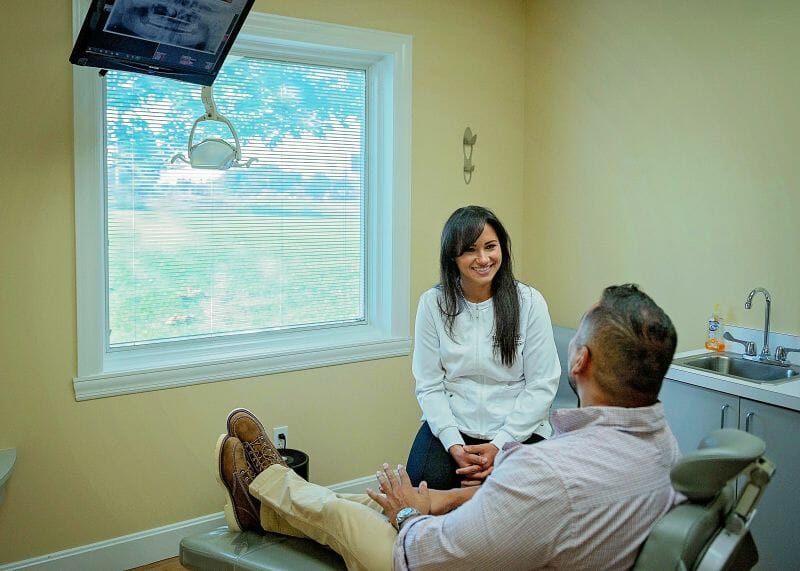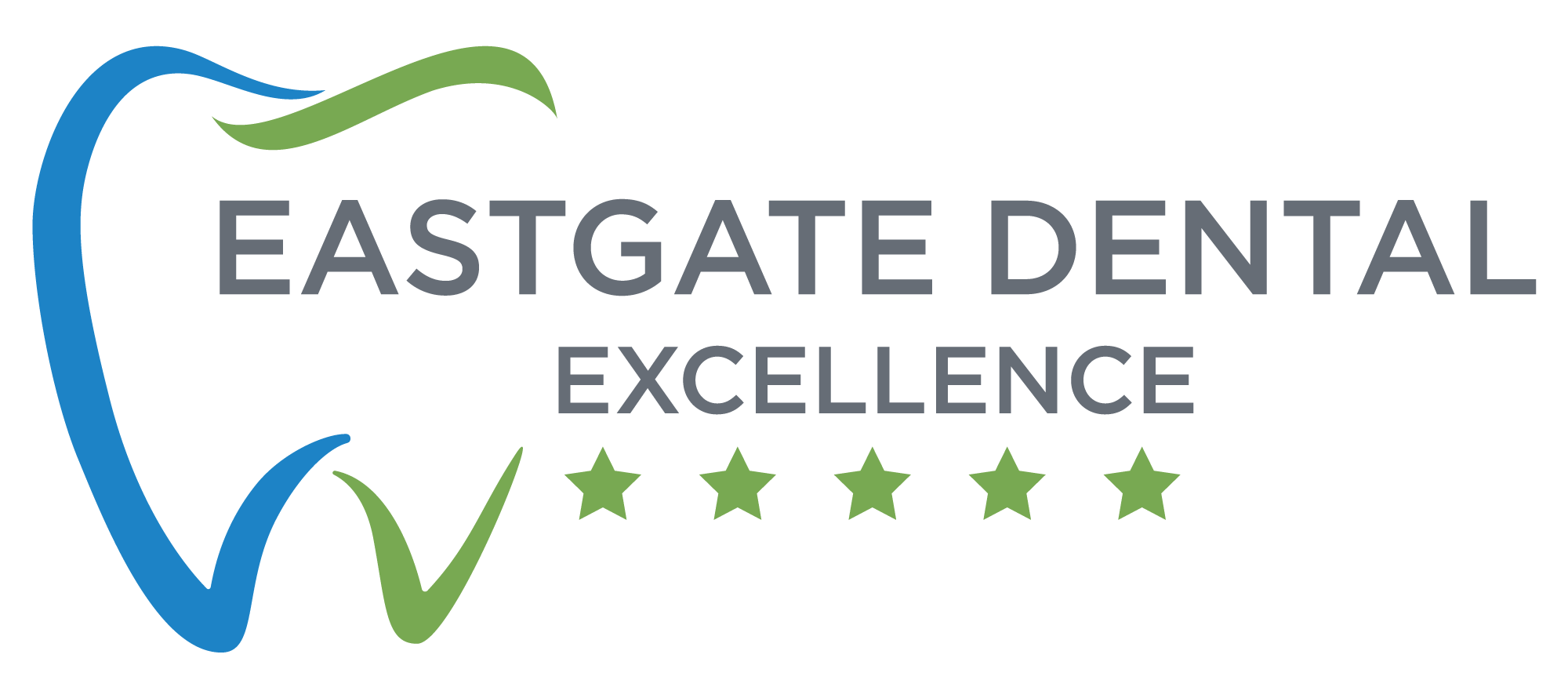Oral Cancer Screening
 Routine cancer screenings of various types have become a part of every person’s wellness examinations and regular healthcare routines. At Eastgate Dental Excellence, we believe that screening our patients for oral cancer is an essential part of preventive dental care.
Routine cancer screenings of various types have become a part of every person’s wellness examinations and regular healthcare routines. At Eastgate Dental Excellence, we believe that screening our patients for oral cancer is an essential part of preventive dental care.
What Is Oral Cancer?
Oral cancer (also called mouth cancer) refers to several types of cancer that occur in and around the parts that make up the mouth and oral cavity. These include cancers of the lips, cheeks, tongue, gums, the roof of the mouth, the floor of the mouth, jaw, sinuses, throat, pharynx, and larynx.
The Importance of Routine Oral Cancer Screening
A routine oral cancer screening can help detect the earliest signs of oral cancer before a patient begins to develop other symptoms. As with most types of cancer, the early detection of oral cancer is key to the most successful treatment outcomes.
While oral cancer screenings are not yet a required or mandated part of regular healthcare, it is thought that routine oral cancer screenings could increase survival rates as a result of earlier diagnoses and treatment. For this reason, our dentists screen every patient for potential signs of oral cancer during each regular dental examination.
What to Expect During an Oral Cancer Screening
An oral cancer screening includes two parts: a visual examination and a physical examination.
Visual Examination
The first part of an oral cancer screening is a visual examination when our dentists inspect your oral cavity for signs of possibly cancerous lesions. We look for abnormalities such as swelling, bumps, rough-looking patches, patches of unusual color, white spots, ulcerations, and asymmetries.
If you have an oral appliance like dentures, we will ask you to remove it for this portion of your examination so that we can clearly view every part of your mouth.
Physical Examination
During an oral cancer screening, our dentists will also palpate your soft tissues, feeling your lips, cheeks, tongue, and neck for unusual masses, nodules, lumps, or bumps that could indicate a cancerous growth.
What If the Dentist Detects Something Abnormal During an Oral Cancer Screening?
Abnormalities detected in a visual or physical oral cancer screening do not confirm the presence of oral cancer and cannot provide an oral cancer diagnosis. However, the early detection of these signs allows us to recommend patients for further testing with a general practitioner or oncologist.
After detecting abnormalities in an oral cancer screening, a tissue biopsy is usually the next step. This involves taking a sampling of cells from the abnormality and testing them in a lab to determine if cancerous cells are present.
To learn more about oral cancer screening or to schedule an appointment, we welcome you to contact Eastgate Dental Excellence today.
From Our Patients

Call Us Today
513-753-0044

Visit Our Office
3241 Mount Carmel Rd.
Cincinnati, OH 45244

